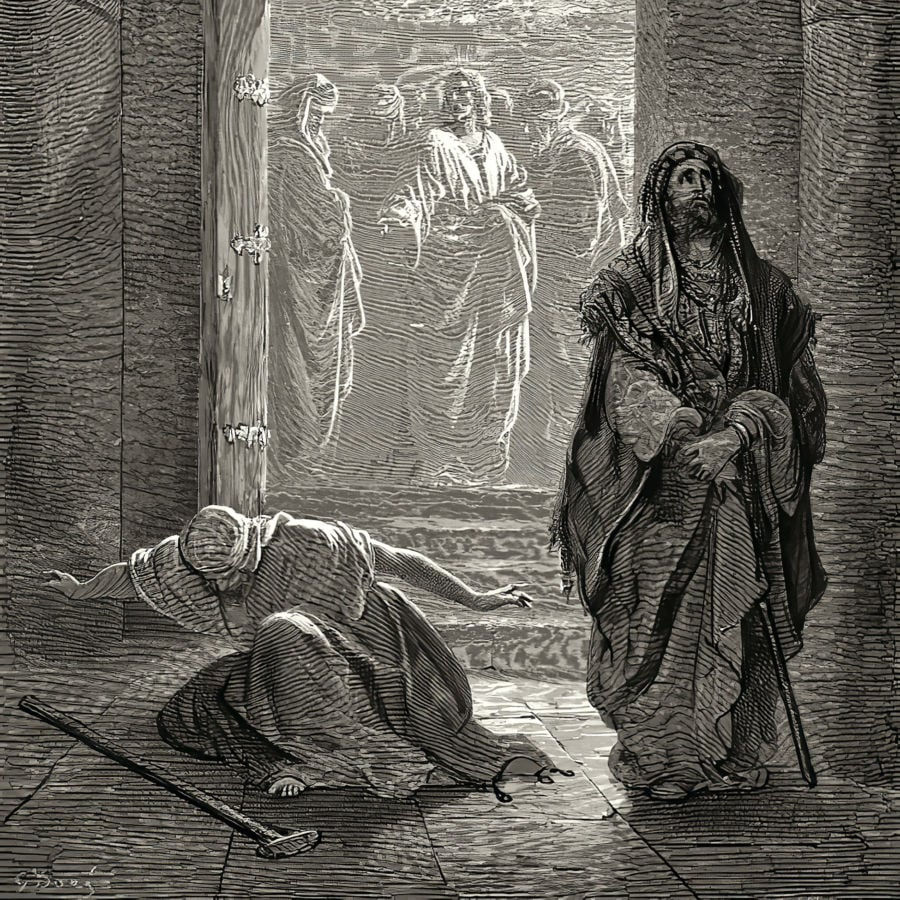
Hypocrisy in the Gospel of Matthew
- David Ross

- Apr 9, 2024
- 4 min read

Earlier this week I submitted a final exegetical paper for one of my classes on the use of the terms hypocrisy/hypocrite in the gospel of Matthew. I thought that this would be an interesting area to explore, given that Mark uses the term(s) twice, Luke five times and John never uses them at all, whilst Matthew uses them fourteen times! This accounts for over half of all of the occurrences in the entire New Testament. When there are significant stylistic differences between the synoptic gospels (Matthew, Mark and Luke), it can be worthwhile probing a little deeper to see if there is any significance behind this. It seems that Matthew had a bone to pick with religious hypocrites!
My paper argued that the primary (though not the only) definition/expression of hypocrisy that Matthew was critiquing was what I called “hypocrisy as display”. I identified Jesus’ teaching on giving to the poor, praying and fasting in Matthew 6 as the most condensed section of teaching on hypocrisy as display in the gospel. The most important feature of the Greek text of these sections in chapter 6 is the purpose constructions, which reveal the internal motivation behind the seemingly pious actions of these “hypocrites”. Verse one serves as a general introduction to Christ’s teaching on these practices: “Beware of practicing your piety before others in order to be seen by them; for then you have no reward from your Father in heaven” (Matthew 6:1 NRSV). The people in question were purportedly giving to the poor, praying and fasting as acts of worship directed towards YHWH. But in reality, they had turned these traditional acts of Jewish piety into displays, shows within which they paraded their own godliness in front of people in an ostentatious manner so as to gain human esteem and status. This is the sense in which Jesus in Matthew identifies these people as hypocrites. They are not what they claim to be and are viewed as publicly.
The likelihood is that these “hypocrites” had no idea that they were, in fact, acting hypocritically in these actions. The challenging thing for us in the here and now is the temptation to say ‘How could these people not have known that sounding a trumpet when they give to the poor was inappropriate? I do no such thing myself, and thank goodness for that.’ The human heart has an uncanny knack for self-deception in these matters, however. John Calvin constantly discussed in his writings the fact that the human heart loves to see itself as more righteous than it truly is. I write these things not to trigger anxiety in my readers, but to invite us, myself included, and the charismatic movement generally, to wrestle with this and in the process to open ourselves up more deeply to be embraced and transformed by God’s fatherly, loving grace.
Much discussed nowadays in North American evangelicalism is the evangelical ‘celebrity culture’. As a movement, especially in North America, I do think that evangelicalism has been guilty of idolizing dynamic, powerful leaders upon whose ministries we see God’s hand. I think that the charismatic movement is no different here. But in the charismatic movement we have different markers for what serves to designate a ‘celebrity’ ministry personality. We often use the language of the man or woman being especially “anointed”. To be completely clear, I am not by any means arguing that all or most well known leaders in the charismatic movement are hypocrites! There are many prominent leaders in the charismatic movement who are beautifully humble and servant-hearted. My key question for the charismatic movement, again myself included, is ‘How much of our “moving in the anointing”, prophesying, praying for healing, worship music and ‘revival meetings’ are truly directed worshipfully towards God, and how much of this is a little bit of a show so as to garner attention, noticeability or the reputation of being ‘anointed’’? To what extent are we, as participants in the charismatic movement, subconsciously contributing to a culture of the celebrity pastor or leader, and therefore possibly to hypocrisy as display?
To use a Scottish word, this discussion all seems rather ‘dour’ (gloomy, dull, depressing). But, to tell you the truth, I think this is a hopeful conversation to be having. I love the charismatic movement, and all the weird and wonderful ways in which God uses it to glorify himself and set people free to know him and love him and others well. The charismatic movement is certainly not alone in its wrestling with a desire to appear godly before others, this is part of being human, and every part of the global church struggles with this as a result. But I have hope that we charismatics can retain our distinctive emphasis on what Gordon Fee called “God’s Empowering Presence”, and also open our hearts up to the Father such that we get what we need ultimately from him, and can live ultimately for his glory rather than public acclaim.
Please let me know what you think about this whole discussion in the comments. I would be interested to hear other perspectives.
Thanks for reading!




Comments